Applied Learning Programme: Environmental Sciences and Sustainability
The Applied Learning Programme (ALP) at Damai Secondary School focuses on Environmental Sciences and Sustainability, with the objective of raising students' awareness of major environmental issues and their impacts on humanity and the planet. The programme hones students' 21st century skills and innovative mindset through hands-on learning experiences and engagement with technology. By aligning with the Singapore Green Plan 2030 and Eco-Stewardship Programme (ESP), the ALP reinforces the school's commitment to sustainability education.
To achieve its goals, the ALP adopts the nationwide 4Cs approach: Curriculum, Campus, Culture and Community. Through the curriculum, environmental topics are embedded in various subjects, enhancing students’ knowledge and skills in sustainability. On campus, students are involved in projects that promote green practices such as waste management and water conservation. The school culture fosters an environmentally conscious mindset, encouraging students to engage in eco-friendly practices daily. Finally, through community involvement, students participate in service learning and advocacy projects, extending their impact beyond the school.
The desired outcomes of Damai Secondary’s ALP include nurturing a commitment to advocate for and engage in sustainable living. This is evident through the school’s environmental education programme, which is seamlessly integrated into both the academic and co-curricular activities. By engaging in these initiatives, students develop a deeper understanding of sustainability and take active steps towards promoting and practising eco-friendly habits. Damai Secondary School's ALP equips students with essential skills and values, empowering them to be proactive stewards of the environment. The programme prepares students for the challenges of the future and instills in them a sense of duty to contribute positively to society and the planet.
Secondary 1
Secondary 1 students focus on the sustainable use of water resources. They learn about global water sources, the impact of human activities on water and marine ecosystems, and the technologies that enable sustainable water recycling and reuse. Integrating cross-disciplinary skills, students use Mathematics to analyse water usage patterns and practise their communication skills in English and Mother Tongue to advocate for water conservation. They also take on leadership roles in water conservation through the Kayak n Klean Values in Action (VIA) activity, where they clean up local waterways. Additionally, they visit ComCrop, Singapore’s pioneering rooftop urban farm, to observe innovative technologies being used to optimise land, energy and water usage. This hands-on experience offers them a deeper insight into environmental sustainability and the crucial role of urban farming in ensuring food security for the future.
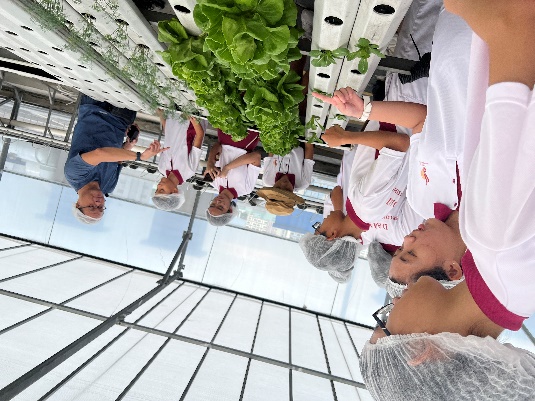
|
|---|
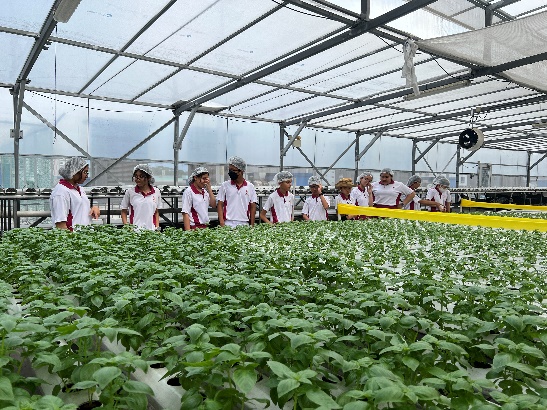
|
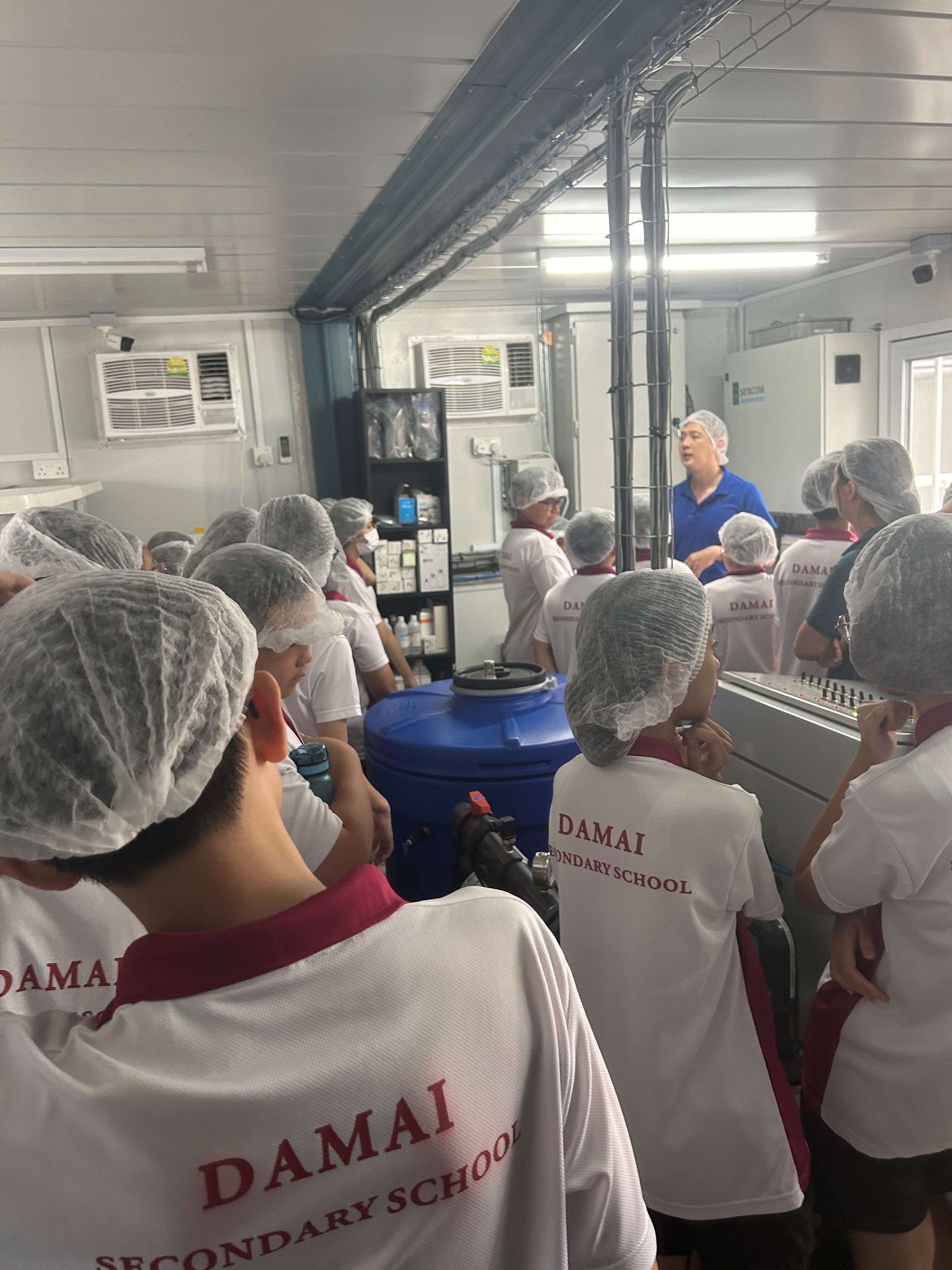
|
Secondary 2
For Secondary 2 students, the focus shifts to sustainable resource management, particularly recycling, reusing and upcycling. During ALP lessons, they embark on a Design Thinking project that encourages them to create solutions promoting recycling efforts. Students also engage in eco-crafting, teaching senior citizens to create practical home items from recycled materials as part of their VIA initiative. Their learning continues in Food and Consumer Education lessons, where they explore the issues of food waste and ugly food. To further deepen their understanding, they visit Agritisan at Agape Village, a local urban farming start-up. Here, they participate in talks on sustainable food production and green career opportunities, followed by hands-on planting and harvesting activities. A highlight of the visit is the Microgreens Workshop, where students cultivate their own crops, fostering a deeper appreciation for sustainable agriculture.
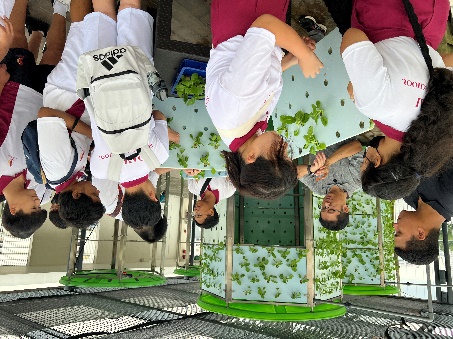
|
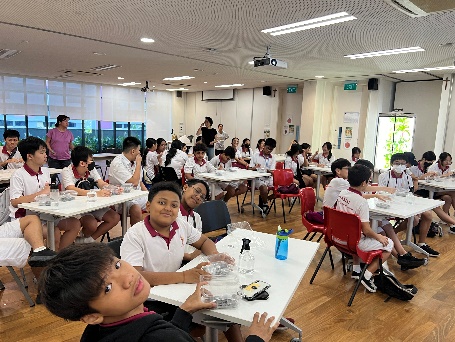
|
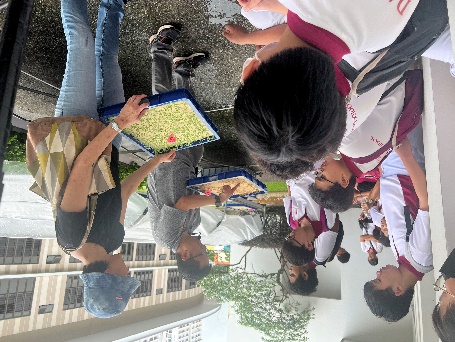
|
|---|
Secondary 3
Secondary 3 students engage in discussions on climate change and the environmental impact of human activities during English and Mother Tongue lessons, honing their critical thinking and communication skills. As part of their experiential learning, they go on a learning journey focusing on composting and ways to minimise food waste. These activities align with Singapore’s 30 by 30 initiative, which aims to meet 30% of the nation’s nutritional needs through local production by 2030. Such experiences not only expand their scientific knowledge but also, inspire a lifelong commitment to sustainability.
School Wide Programme
As a school, we continue to cultivate a culture of sustainability and conservation. For Earth Day and World Water Day, the Leaders Council and the English Department lead various commemorative activities to raise awareness. Additionally, the school hosted an educational showcase on marine conservation in October 2024, where students had the opportunity to interact with marine life, including sea stars and porcupine fish, deepening their understanding of marine ecosystems.
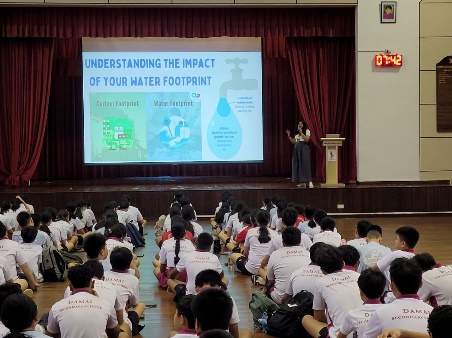
|
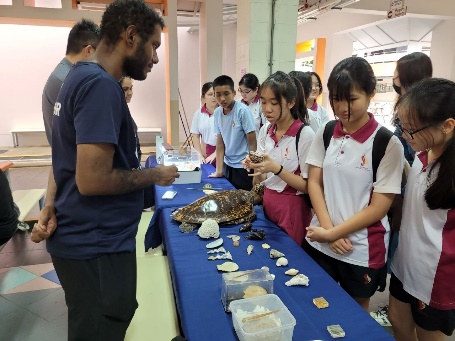
|

|
|---|

